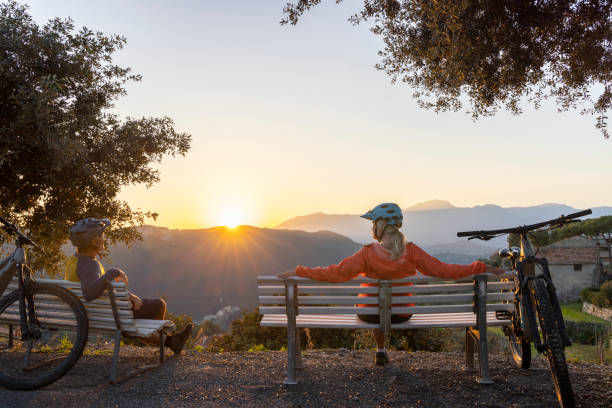Reclaiming Rest – Why True Relaxation Starts Outdoors
- Brainz Magazine

- Sep 25, 2025
- 4 min read
Written by Zoe Fuggle, Occupational Therapist
Zoë Fuggle is a specialist Occupational Therapist and founder of Roots OT. She has over 15 years of experience in providing specialist mental health care and combines her passion for women’s mental health and nature to provide a unique service supporting women experiencing anxiety, stress, and burnout.

When we think of rest, we often imagine lying still, perhaps on the sofa, under a blanket, scrolling or watching something quiet. We equate rest with stopping, with being still, with doing nothing. But here’s the truth, real rest doesn’t always look like stillness. In fact, one of the most powerful ways to truly restore your energy, calm your nervous system, and reset your busy mind is by stepping outside.

Nature has an extraordinary way of inviting us into active rest, experiences that engage our senses, gently move our bodies, and free our minds from the noise of daily life. This kind of rest isn’t passive. It’s nourishing, grounding, and deeply effective at helping us return to balance.
Types of rest
Rest is not just sleep or vegging in front of the TV, research highlights that there are seven distinct types of rest – physical, mental, sensory, emotional, social, creative, and spiritual. Nature has a remarkable way of meeting each one!
Physical rest can be supported by a gentle walk, yoga outside, or simply sitting in nature, observing, or journaling, which can also provide a mental break. Nature supports sensory rest by taking us away from the hustle and bustle of daily life and introducing us to other sounds, sights, and smells. Similarly, sharing space with nature, for example, trees can leave us feeling safe and supported. Spending mindful time in nature evokes awe and helps create brain space and fuels our creativity, for example, witnessing a sunrise. In this way, we can feel part of something much bigger, and it can help us gain perspective.
Why the outdoors changes everything
Science continues to confirm what we intuitively know, time spent in nature improves mood, reduces cortisol (our stress hormone), and helps regulate sleep.
Natural light helps to reset our circadian rhythms, improving both energy levels during the day and the quality of sleep at night.
Fresh air oxygenates the brain, helping clear mental fog and improving focus.
Gentle movement, even a slow walk, stimulates circulation, supports digestion, and helps process stress hormones that build up when we’re overwhelmed or anxious.
Outdoors, we’re not just “getting away” from our responsibilities, we’re returning to a space that supports our biology and supports us to process life events. Humans evolved in rhythm with nature, sunlight, seasons, natural sounds, yet modern life often pulls us far from those rhythms. Reclaiming outdoor rest is, in many ways, reclaiming a part of ourselves.
An invitation: Active rest in practice
Rest doesn’t need to be complicated or time-consuming. It’s about creating small, intentional pauses that allow your body and mind to recalibrate. Here’s a simple exercise you can try today:
The sunset pause
Step outside just before sunset.
Find a comfortable spot where you can see the sky.
As the light changes, simply notice what’s happening, colours shifting, sounds softening, temperature cooling.
Take five slow breaths, letting your exhale be slightly longer than your inhale.
With each breath, imagine letting go of the day’s tension and welcoming the quiet of evening.
This practice takes less than 10 minutes, yet it gently cues your body to transition out of “doing” and into “resting,” preparing you for a more peaceful night.
Reclaiming rest as a daily ritual
True relaxation doesn’t always mean stopping everything, it means aligning with what helps you truly restore. When we step outdoors, we’re giving ourselves the chance to reconnect with the world, with our senses, and with our own inner balance.
Rest isn’t laziness. It’s a skill. And when we reclaim it in its most natural form, we create the foundation for better mental health, steadier energy, and a calmer way of living, even in a busy, demanding world. According to Psychologist Dattilo-Ryan, rest is like a bank account, when you’re busy, you make many withdrawals and few deposits. But resting allows you to build a diverse portfolio of investments.
So, how will you bring nature into your daily ritual, so you can ensure rest is a priority for you? If you’re in need of some guidance or inspiration round how nature can support you to rest and find balance in these difficult times, join me on one of the links below and contact me for more details.
Read more from Zoe Fuggle
Zoe Fuggle, Occupational Therapist
Zoë Fuggle is an Occupational Therapist and practitioner of Nature-Based Therapy at Roots OT. Since qualifying as an Occupational Therapist in 2008, she has specialised in providing quality mental health care to women from all walks of life. Zoë has always had a passion for nature and the outdoors, and following her own experience of burnout and realising the true power of nature in her healing journey, she has made it her mission to share this with other women to promote reconnection and recovery.









